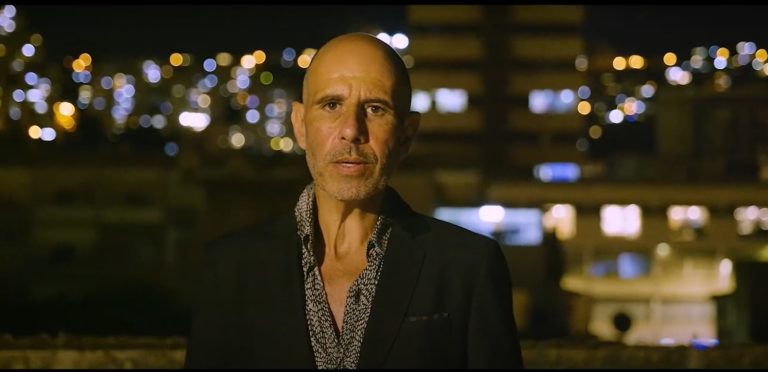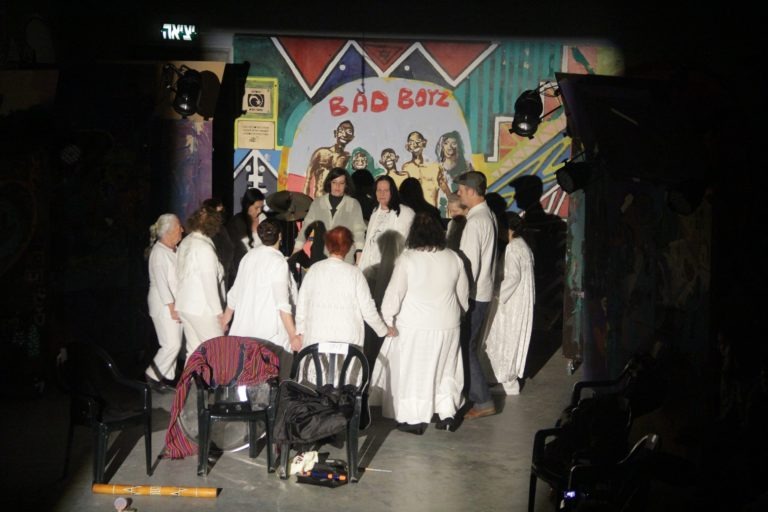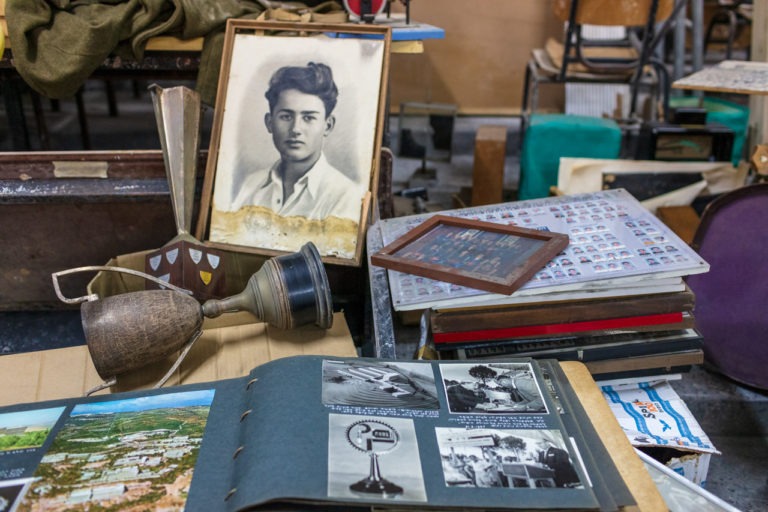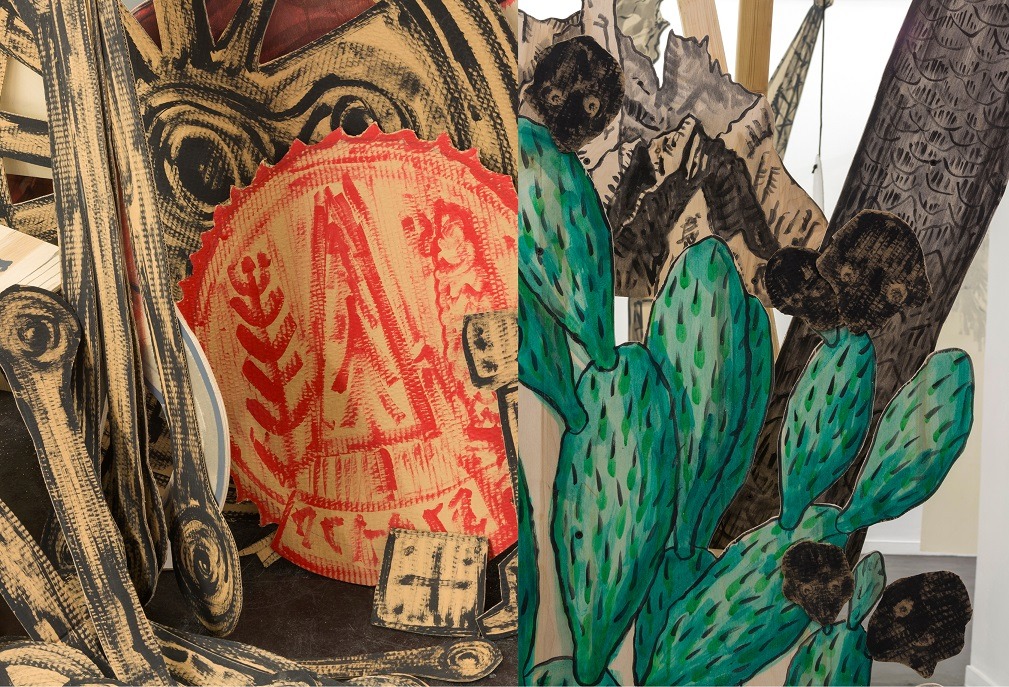
"חיפה הקוסמופליטית": הרצאות ושיחה
אירועים מיוחדים במיצב של נועם תורן: "מטאור בוהק יאיר את דרכו של הפועל". מארגנים: לאה אביר, אדם חאג' יחיא
- שוק תלפיות, סירקין 35
"חיפה הקוסמופליטית", במיצב "מטאור בוהק יאיר את דרכו של הפועל"
12:00
ד"ר נדים כרכבי: "חיפה כמרכז לתרבות פלסטינית"
חיפה, שהיתה מרכז קוסמופוליטי חשוב לפני הנכבה, איבדה את רוב האוכלוסייה הפלסטינית שלה ב-1948, כולל האליטה הפוליטית, הכלכלית והתרבותית. בשלושת העשורים האחרונים, עם התרחבות יצירות האומנות ומרחבי התרבות הפלסטינית העצמאית, חיפה חזרה להיות מרכז תרבותי פלסטיני שוקק. הרצאה זו תעסוק בשתי שאלות: כיצד התפתחות זו התרחשה? ולמה דווקא בחיפה? ההרצאה תקשור בין התפתחות תרבותית זו להופעתו של מעמד ביניים עירוני ולדגש על תחושת/נושא השייכות הלאומית הפלסטינית.
ד"ר נדים כרכבי הוא מרצה בחוג לאנתרופולוגיה באוניברסיטת חיפה. במחקרו אודות סצינת המוזיקה הפלסטינית האלטרנטיבית הוא התמקד ביחסים בין עונג לפוליטיקה, בהומור כמתודה של תקווה ובתרבויות אורבניות פלסטיניות. לאחרונה הוא החל לחקור אספקטים מצטלבים של שפה, אתניות, דת ולאומיות בביצועי מוזיקת פופ ישראלית בערבית.
12:30
הרצאה של הייא זעאתרה – עירוניות פלסטינית מתחדשת בחיפה: עיר, מקום, תרבות וזהות
בשנים האחרונות מתרחשת תופעה אורבנית ייחודית בחיפה, במיוחד בעיר התחתית, שהפכה למרכז ליצירה אמנותית, בידור ופנאי לדור צעיר של פלסטינים אזרחי ישראל. ישנו גידול ניכר במספר מקומות הבילוי והחללים המיועדים ליצירה פלסטינית בכל תחומי התרבות והאמנות. מקומות אלה לוקחים חלק ביצירת זהות מקומית דרך תהליך של חקירה פנימית ובו בזמן גם דיאלוג גלובלי עם העולם הרחב, עם העולם הערבי ועם העם הפלסטיני באופן ספציפי.
מחקרה של הייא זעאתרה תרי בוחן את התופעה האורבנית הזו דרך ארבעה תחומים: היסטוריה, תכנון עירוני, אדריכלות וחברה. דרכם היא בוחנת את פניה השונות של התופעה ומדגישה את חשיבותה כהתגלמות של תחייה אורבנית פלסטינית בחיפה. ממצאי המחקר משמשים לנסח תובנות חדשות על תהליכים שמתרחשים כיום בחברה הפלסטינית, ויותר מכך, על מערכת היחסים הדינמית בין חברה זו לבין מדינת ישראל.
הייא זעאתרה היא זמרת וכותבת פלסטינית, לומדת בפקולטה לארכיטקטורה ובינוי ערים בטכניון. היא מייסדת שותפה של "אלג'ם" – פרויקט קהילתי ללא מטרות רווח. ב – 2017 היא צוינה כאמנית הפלסטינית הנבחרת של פרויקט XABACA בברצלונה שמטרתו לחזק ולחבר בין אמניות נשים מרחבי העולם הערבי. במהלך הפרויקט, ככבה זעתרי לצד אמניות טוניסאיות ולבנוניות בסרט הדוקומנטרי ששמו, "גבולות והבטחות", הוא שם אחד משיריה. בשנת 2019 היא זכתה בפרס הראשון של הכנס לחוקרים צעירים שנערך בפקולטה לאדריכלות ותכנון עירוני בטכניון.
13:00
שיחה עם נדים והייא
13:30
עטאללה טנוס – "רומן לבנטיני" – אסמבלאז' של דימויים ממאבקי עובדים פלסטינים, סורים ולבנונים שראו חזון שונה לאזור שאנו מכירים כיום.
הקראה של כתבים ארכיוניים, בביצוע השחקן עטאללה טנוס, אשר שופכת אור על ההיסטוריה של חיפה דרך דמויות מרכזיות באיגודי עובדים באזור, אשר שיקפו אחדות ותקווה על אף הנסיונות הקפיטליסטים והקולוניאלים לנצל את המרחב הגיאופוליטי. העיר חיפה מעולם לא היתה ידועה בהקשרים דתיים או רוחניים, בניגוד לערים אחרות באיזור, אולם יש לה חשיבות רבה כעיר בעלת אופי קוסמופוליטי, שיש בה קהילות מגוונות, אקטיביזם ומודעות חברתית, ובכך שצמחו בה איגודי עובדים רבים. לאורך ההיסטוריה, היו לחיפה קשרים תרבותיים ופוליטיים הדוקים לדמשק וביירות, דבר שהשתקף בתנועות סולידריות שונות ובלאומיות הערבית באזור, ובא לידי ביטוי במיוחד במסגרת מאבקי עובדים ואיגודים אנטי-קולוניאלים.
זוהי הקראה של כתבים ארכיוניים שלא קיבלו הערכה מספקת בתרבות הפופולרית ונותרו לרוב עלומים. התחביר והביצוע של ההקראה מכוונים להפר את הסדר הלינארי שמציעות קריאות היסטוריות וגיאוגרפיות פופולריות ולספק מסגרת ליצירתן של קריאות חדשות.
עטאללה באסל טנוס נולד ב – 1997 בתרשיחא ומתגורר ביפו. החל מ – 2017, טנוס הוא סטודנט למשחק במסלול למצטיינים של אוניברסיטת תל-אביב. הוא שיחק בתפקידים ראשיים בהצגות: "אדיפוס המלך", "אבסינת", "הנשים של איבסן" ו"אני אמות אם אני אמות", במסגרת החוג לאמנות התיאטרון, אוניברסיטת תל-אביב.
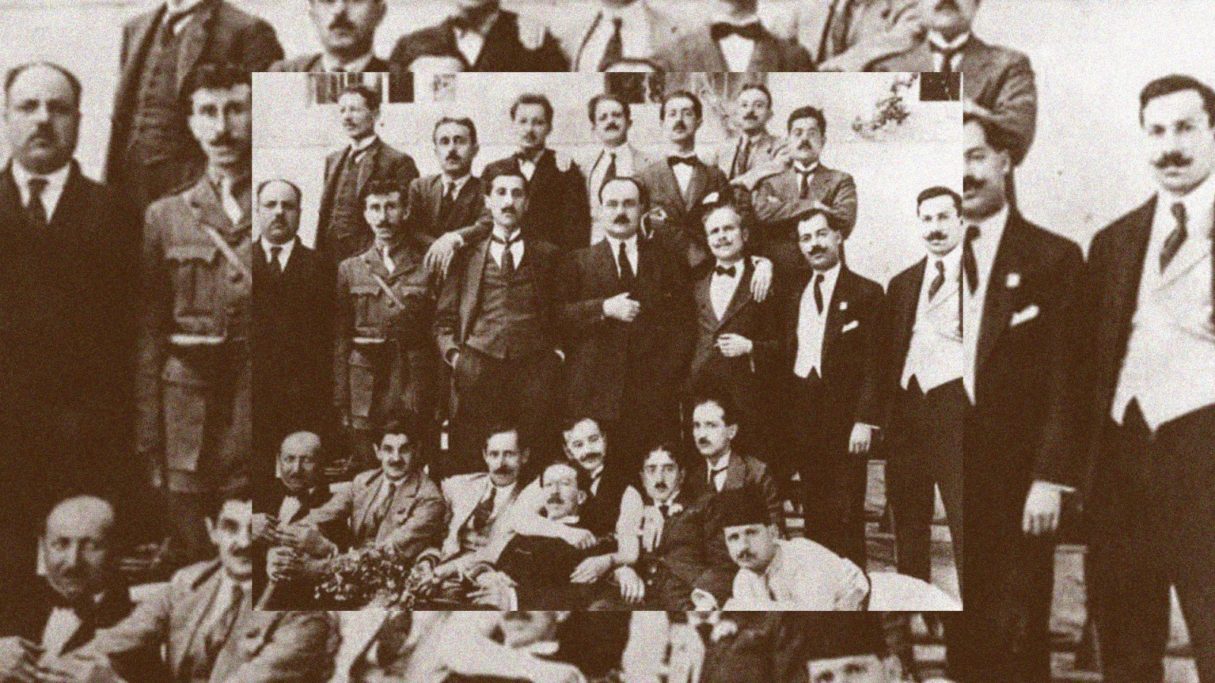
12:00
Haifa as a Palestinian Cultural Hub
Haifa, which was an important cosmopolitan center before the Nakba, lost most of its Palestinian residents due to depopulation in 1948, including the political, economic and cultural elite. Over the last three decades, with the growth of independent art and cultural production and the establishment of many independent Palestinian cultural spaces, Haifa is returning to become a bustling, lively Palestinian cultural center. This lecture will address and tackle two main questions: How did this development occur? And why specifically in Haifa? The lecture will examine this cultural development with an emphasis on the emergence of an urban middle class and themes of Palestinian national belonging.
Nadeem Karkabi is a lecturer at the Department of Anthropology at the University of Haifa. In his research on the Palestinian alternative music scene, he has focused on the relations between pleasure and politics, on humor as method of hope, and on Palestinian urban cultures. He has recently begun working also on intersecting aspects of language, ethnicity, religion and nationalism in the performance of Israeli popular music in Arabic.
12:30
A talk by Haya Zaatry – Revived Palestinian Urbanity in Haifa: City, Place, Culture & Identity
In recent years, a unique urban phenomenon is taking place in the city of Haifa, particularly in its downtown, which has become a cultural center for artistic creation, entertainment and leisure for the young generation of Palestinian citizens of Israel. There is a significant growth in the number of entertainment venues and places for Palestinian creation in all fields of arts and culture. These places are taking part in shaping a local identity through a process of inwards exploration, along with a global dialogue with the world at large, the Arab world in general and the Palestinian people in particular.
Haya Zaatry’s research examines this urban phenomenon through four spheres: history, urban planning, architecture and society, to explore its different facets and emphasize its significance as a manifestation of a revived Palestinian urbanity in Haifa. The findings of this research will enable formulating new insights about the processes that are occurring nowadays in the Palestinian society, and moreover, on the dynamic relationship between this society and the state of Israel.
Haya Zaatry is a Palestinian Singer-Songwriter, Architect and researcher at the Technion Institute of Technology. She is also the co-founder of “Eljam”, a non-profit community project.
In 2017 she was the selected Palestinian artist for XABACA project in Barcelona, aiming to empower and connect female artists from around the Arab world. During the project Haya starred alongside a Lebanese and a Tunisian artist in the documentary “Borders and Promises” named after one of her songs.
In 2019 she won the first prize of the young researcher conference that was held in the faculty of Architecture and Town Planning at the Technion.
13:30
Readings of archived writings performed by Atallah Tannous, aiming to shed light on historical occurrences and key-figures in labor unions, all of which reflected unity and hope for the region despite capitalist colonial attempts to exploit this geopolitical space. Haifa was never famous for its religious or spiritual historical context, unlike other important cities in the region. Yet, it has great significance in allowing many things to occur due to its cosmopolitan nature, polylithic communities, social-conscious activism and the worker's unions that were established within it. Historically, Haifa had tight cultural-political connections to Damascus and Beirut. Which is reflected through solidarity movements and Arab nationalism in the region, especially in labor struggles and anti-colonial unionships.
These are readings of texts that are not valued enough in popular culture and are too often commonly unknown. It aims to disrupt linear, geographic and popular history to serve a framework for creating a new one.


